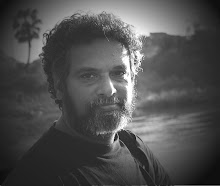
KARNNABHARAM (The anguish of Karnna), The Malayalam adaptation of the Sanskrit Classic Performed by Lokadharmi Kochi Kerala is invited to Visaka Ranga Mahotsav – 2009 at Visakapatnam. The play is written by Mahakavi Bhasa, translated into Malayalam by Kavalam Narayana Panikkar, Music direction by Bijibal, Lighting by Gireesh Menon and the Design & Direction is done by aChandradasan.
- This play has won the prestigious awards for Best play, best stage design & best costume design from Mahindra Excellence in Theatre Awards 2008.
- Also nominated for best Actor, best Ensemble and best Choreography in the festival
Karnnabharam will be performed at Visaka Music and dance academy (Kalabharathi), at Pitapuram Visakapatnam at 6.30 pm on 10th July 2009.
Earlier Karnnabharam had been performed in Hyderabad and Vijayanagaram in Andhra Pradesh, and also in the major cities all over India that includes Kolkota (Bengal), Mysore, Bangaluru, Gulbarga, (Karnataka), Jagdalpur (Chatisgad), Cuttack (Orissa), Patna (Bihar), New Delhi, and Kurukshethra (Hariyana).
This play is performed widely in major theatre festivals all over India including Bharath Rang Mahotsav New Delhi 2006.
This is the 317th show of the play.
The artists traveling to perform the play are Sudheer Babu, VR Selvaraj, Sijin Sukumar, Madan Kolavil, Sebastian K Abraham, Jyothi Madan, Jolly Antony, Shyju T Hamsa, Vysakh Lal, Sumesh Chittooran, Santhosh Piravam, Ajaikumar Thiruvankulam, Sanosh Palluruthy, Aadarsh Madhav, Jebin Jesmes, Gireesh Menon, Anoop S Kalarikkal and Chandradasan.
The Visaka Ranga Maholsava is organised by NSD RRC Bangaluru and is from 5th July to the 10th of July. The plays scheduled are
Mayabazar (Telugu) – A. Manohar(late) - Surabhi, Hyderabad. (05th July)

The famous Surabhi tradition is on show where animals walks, a whole city flown away, arrows on fire, fountains and stalls sprout water, chariots passes across,- the typical Surabhi blend of mythology and magic on stage in an untold Love Story from the Mahabharata. The real visual delight stage tricks, and music that blends together to create the 120 year tradition of continuous performing culture of Surabhi.
Gokula Nirgamana (Kannada) – BV Karanth (late) – Benaka ,Bangaluru (06th July)
This play is one of the masterpieces of the late BV Karanth and the group Nepathya is still performing it as attribute to the master director. This play is about Krishna, his flute, his dreams, destiny of human life on earth and more. When the young Krishna left Gokula, his childhood friends, and a lover, leaves his flute behind. Did he also leave a simple, beautiful life behind, on a journey that would only end in the annihilation of his people, and the end of his "avatara" on Earth? Is the flute left behind for the greater calling of protecting the very thing the flute and its music represent? The play depicts the cultural grandeur of Gokula in a very simple manner with subtle messages and magnificent performances-a musical extravaganza, rendered rich literary constructions full of rhythmical patterns and rhythmic movements and music.

Kuthirai Muttai (Tamil) – Shanmugaraja- Nigazh Madurai (07th July)
M. Shanmugaraja’s play ‘Kuthirai Muttai’ (Horse egg) of Constantine Joseph Beschi, an Italian Jesuit Priest, who was popularly known as ‘Veeramamunivar’., who had learnt Tamil language with an intention to befriend and inspire Tamil-speaking public and in turn got inspired and fell in love with the language itself. The play captures the essence of humour depicting the sage and his whimsically humorous journey in pursuit of disciples.
Pravachaka (Malayalam) – CV Sudhi – Nireeksha Thiruvananthapuram – (08th July)
This play delves into the power structure in society and how women still find it difficult to be heard in a patriarchal society, by adapting the story of Cassandra from Greek mythology, scripted by E. Rajarajeswari. The rich subtexts and connotations raise this play above a costume play by the simple retelling of the Greek myth to contemporary social realities. Cassandra becomes a symbol for every woman’s plight and predicament and the play, an allegory. As war is forced on a peaceful land, the women have almost no say in the matter and can only watch the death and destruction that follow. The men and women seemed to be dwelling on different hemispheres and performance emphasizes the differences in the mindscapes of men and women.
Kabir Das (Telugu) - D. Someswara Rao - Rasa Ranjini, Hyderabad (09th July)
Rasaranjani the pioneering theatre group in hyderabad is performing Kabir Das, a play on the life of the legendary poet saint Kabir Das of the 15th century. It is believed at he was born in 1440, near Varanasi and he grew up in a Muslim weaver family, but some say he was really the son of a Brahmin widow, and was adopted by a Muslim childless couple. The play deals with the later part of Kabir Das' life, when he teaches both Hindu and Muslim faiths.
Karnnabharam (Malayalam) – Chandradasan – Lokadharmi, Kochi (10th July).
The festival concludes with Karnnabharam, the Malayalam adaptation of the Sanskrit classic by Bhasa, which attempts to interpret an epic for the modern world; to seek an understanding of contemporary India that is fast degenerating due to caste politics. This plat synthesizes elements of a classical Sanskrit play into the format of a Malayalam folk theatre system.

Karnnabharam for HPCL officers club
the 319th show of Karnnabharam will be done at HPCL officers club at Waltair, Visakhapatnam on the evening of 11th of June 2009. This is a special show by invitation and exclusively for the officers of HPCL Visakhapatanam.
there is no invitation, this play only for Officers
Labels: Chandradasan, Karnnabharam, Lokadharmi





![2009071750080201[1] 2009071750080201[1]](https://blogger.googleusercontent.com/img/b/R29vZ2xl/AVvXsEg2q3AvY4wcoA1L4HKhGdx6FsRrbrL_tQ9YxYTMApGFUdLxaBPODHCVAg8FMBn77ozpkjNiajbAQuf-pvqsIGh8AjmkObfzsx89T2wzS6Rep-BB6elEhUzc7UVszKhuDXvp_f9fCfX8jady/?imgmax=800)
![2009071750080202[1] 2009071750080202[1]](https://blogger.googleusercontent.com/img/b/R29vZ2xl/AVvXsEgCQj9uC4NFy8Bhpjy6p2Q_AtYooiSmJ21vZ6NKatyh5nxL0NM-67Jt387sRVzMHVuBlWLCDYeH12U5yB1bZ1CTmKYIzdiqqSIsCG3tZolZP2Q9qAUyud-2kM2XRlcSDFkhloCJipAfyz7t/?imgmax=800)







